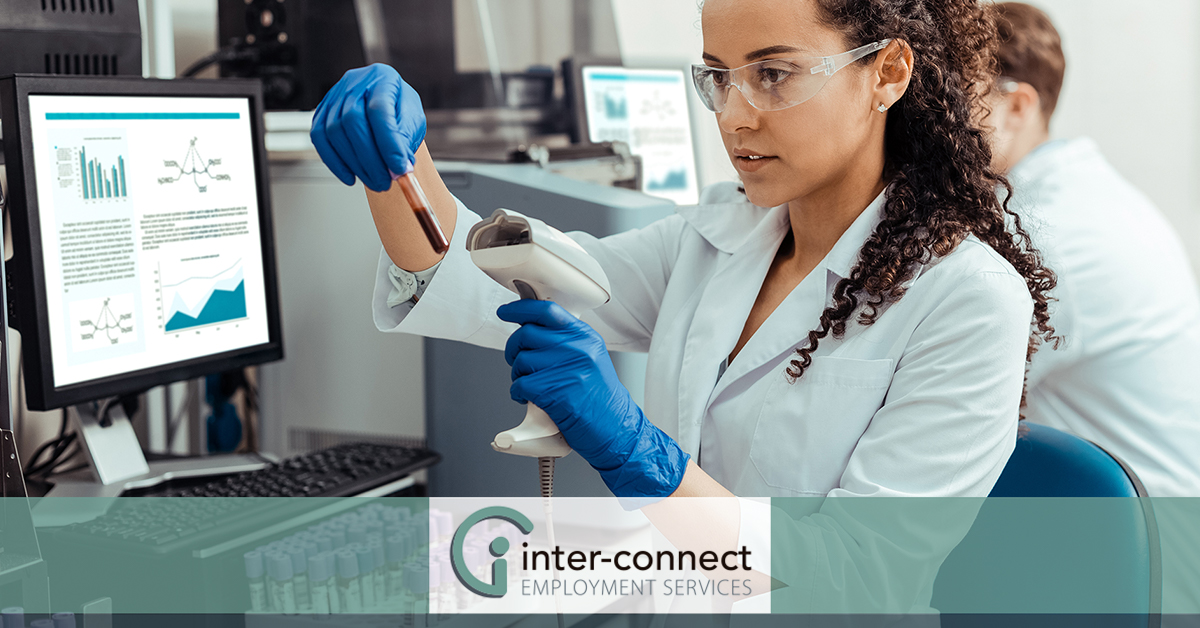
Share this
April 23, 2021
Looking for a new job opportunity? Interested in becoming a lab technician? You may be wondering what this role entails, lab technician qualifications, and what you need to succeed in this type of job.
What You Need to Know About Becoming a Lab Technician
What does a lab technician do?
By drawing blood samples and then performing tests and analyses, lab technicians support health care professionals such as doctors, scientists, laboratory specialists and laboratory assistants. After a patient’s blood draw (either from the lab technician or another medical professional), the lab technician uses equipment such as microscopes and computers to review samples and record results. More experienced lab technicians may perform a more complex review to find abnormalities in blood or other body fluids.
What qualifications do I need to be a lab technician?
First and foremost, a lab technician needs compassion and empathy to be good at their job. Many patients are scheduled for blood work when something is wrong, and they may be feeling upset and worried. Plus, blood work is something many people dread. A kind and upbeat lab tech helps to ease the worries of nervous patients, putting their minds at ease and helping the blood draw experience go smoothly.
Good manual dexterity will help with sample collection and handling, helping a technician avoid mistakes and use all equipment properly.
A long shift with many patients/samples requires a lab technician with stamina. A day’s work could require a lab tech to spend a lot of time on their feet.
What are the educational requirements?
Most lab techs have a high school diploma, followed by an associate’s degree in clinical laboratory technology, or clinical laboratory sciences. Subjects covered include math, chemistry, biology and data processing. If you’re a professional who already has a degree in a related field (such as a nurse), you can transition to a lab technician role with a one-year certificate program.
Depending on the state in which you live, you may also need to be licensed through a licensing certification program and an annual licensing fee. These states are California, Georgia, Hawaii, Florida, North Dakota, Tennessee, Louisiana, Montana, Nevada, New York and West Virginia.
In search of a lab technician job?
Let Inter-Connect help. To learn more, visit our job search page for open opportunities.


